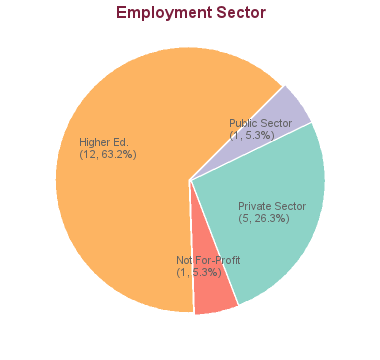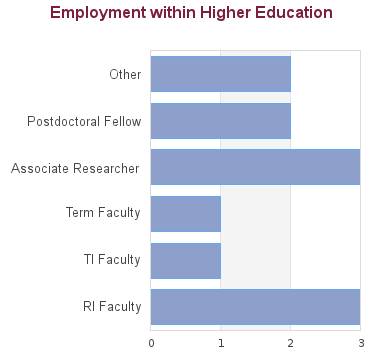
Ricardo Rivera-Acevedo
Job Title
Chief Scientific Officer. Cannabinologist
Employer
Ecovita Health Corp, Evitrade Health Systems

Review details about the recently announced changes to study and work permits that apply to master’s and doctoral degree students. Read more
The Deptment of Anesthesiology, Pharmacology & Therapeutics has a long-standing reputation of excellence in the field of drug research that goes back to 1951. Facult members in the Department are engaged in researh in areas of neural, cardiovascular, respiratory, endocrine and clinical pharmacology, pharmacoepidemiology, acute and chronic pain management, cardio-pulmonary sciences, clinical outcomes and patient safety, equity in medicine, evidence-based medicine and knowledge translation, intensive care, transplant and transfusion medicine, neurosciences and anesthesiology, obstetric anesthesiology, pediatric anesthesiology, perioperative technology and integration, pharmacoepidemiology, regional anesthesiology, as well as drug development. Exceptional students with an undergraduate degree may be admitted directly into the Ph.D. program. Some students do a combined M.D./Ph.D. program for which a separate admission into the M.D. program, by the Faculty of Medicine, is required. Students pursuing a Ph.D. will have the opportunity to interact with basic as well as clinical scientists.
The shared research interests in anesthesiology, pharmacology, drug development and therapeutics allow students to gain broad-based exposure to fundamental as well as medically-related aspects of drug research. Research projects in the department are funded by operating grants from CIHR, NSERC, The Heart Foundation, etc. In addition, many of our students receive the highly competitive CIHR and NSRC studentship awards.
The Faculty of Graduate and Postdoctoral Studies establishes the minimum admission requirements common to all applicants, usually a minimum overall average in the B+ range (76% at UBC). The graduate program that you are applying to may have additional requirements. Please review the specific requirements for applicants with credentials from institutions in:
Each program may set higher academic minimum requirements. Please review the program website carefully to understand the program requirements. Meeting the minimum requirements does not guarantee admission as it is a competitive process.
Applicants from a university outside Canada in which English is not the primary language of instruction must provide results of an English language proficiency examination as part of their application. Tests must have been taken within the last 24 months at the time of submission of your application.
Minimum requirements for the two most common English language proficiency tests to apply to this program are listed below:
Overall score requirement: 100
Reading
22
Writing
22
Speaking
22
Listening
22
Overall score requirement: 7.0
Reading
6.5
Writing
6.5
Speaking
6.5
Listening
6.5
Some programs require additional test scores such as the Graduate Record Examination (GRE) or the Graduate Management Test (GMAT). The requirements for this program are:
The GRE is not required.
Deadline to submit online application. No changes can be made to the application after submission.
Transcript DeadlineDeadline to upload scans of official transcripts through the applicant portal in support of a submitted application. Information for accessing the applicant portal will be provided after submitting an online application for admission.
Referee DeadlineDeadline for the referees identified in the application for admission to submit references. See Letters of Reference for more information.
All applicants have to submit transcripts from all past post-secondary study. Document submission requirements depend on whether your institution of study is within Canada or outside of Canada.
A minimum of three references are required for application to graduate programs at UBC. References should be requested from individuals who are prepared to provide a report on your academic ability and qualifications.
Many programs require a statement of interest, sometimes called a "statement of intent", "description of research interests" or something similar.
Students in research-based programs usually require a faculty member to function as their thesis supervisor. Please follow the instructions provided by each program whether applicants should contact faculty members.
As the PCTH PhD program is research-based, students will need to find a faculty member who will supervise their research project. As faculty can supervise a limited number of students, we strongly encourage students to contact and confirm a supervisor before submitting their application.
Permanent Residents of Canada must provide a clear photocopy of both sides of the Permanent Resident card.
All applicants must complete an online application form and pay the application fee to be considered for admission to UBC.
| Fees | Canadian Citizen / Permanent Resident / Refugee / Diplomat | International |
|---|---|---|
| Application Fee | $116.25 | $168.25 |
| Tuition * | ||
| Installments per year | 3 | 3 |
| Tuition per installment | $1,875.34 | $3,294.66 |
| Tuition per year (plus annual increase, usually 2%-5%) | $5,626.02 | $9,883.98 |
| Int. Tuition Award (ITA) per year (if eligible) | $3,200.00 (-) | |
| Other Fees and Costs | ||
| Student Fees (yearly) | $1,144.10 (approx.) | |
| Costs of living | Estimate your costs of living with our interactive tool in order to start developing a financial plan for your graduate studies. | |
Applicants to UBC have access to a variety of funding options, including merit-based (i.e. based on your academic performance) and need-based (i.e. based on your financial situation) opportunities.
From September 2024 all full-time students in UBC-Vancouver PhD programs will be provided with a funding package of at least $24,000 for each of the first four years of their PhD. The funding package may consist of any combination of internal or external awards, teaching-related work, research assistantships, and graduate academic assistantships. Please note that many graduate programs provide funding packages that are substantially greater than $24,000 per year. Please check with your prospective graduate program for specific details of the funding provided to its PhD students.
All applicants are encouraged to review the awards listing to identify potential opportunities to fund their graduate education. The database lists merit-based scholarships and awards and allows for filtering by various criteria, such as domestic vs. international or degree level.
Many professors are able to provide Research Assistantships (GRA) from their research grants to support full-time graduate students studying under their supervision. The duties constitute part of the student's graduate degree requirements. A Graduate Research Assistantship is considered a form of fellowship for a period of graduate study and is therefore not covered by a collective agreement. Stipends vary widely, and are dependent on the field of study and the type of research grant from which the assistantship is being funded.
Graduate programs may have Teaching Assistantships available for registered full-time graduate students. Full teaching assistantships involve 12 hours work per week in preparation, lecturing, or laboratory instruction although many graduate programs offer partial TA appointments at less than 12 hours per week. Teaching assistantship rates are set by collective bargaining between the University and the Teaching Assistants' Union.
Academic Assistantships are employment opportunities to perform work that is relevant to the university or to an individual faculty member, but not to support the student’s graduate research and thesis. Wages are considered regular earnings and when paid monthly, include vacation pay.
Canadian and US applicants may qualify for governmental loans to finance their studies. Please review eligibility and types of loans.
All students may be able to access private sector or bank loans.
Many foreign governments provide support to their citizens in pursuing education abroad. International applicants should check the various governmental resources in their home country, such as the Department of Education, for available scholarships.
The possibility to pursue work to supplement income may depend on the demands the program has on students. It should be carefully weighed if work leads to prolonged program durations or whether work placements can be meaningfully embedded into a program.
International students enrolled as full-time students with a valid study permit can work on campus for unlimited hours and work off-campus for no more than 24 hours a week during academic sessions.
A good starting point to explore student jobs is the UBC Work Learn program or a Co-Op placement.
Students with taxable income in Canada may be able to claim federal or provincial tax credits.
Canadian residents with RRSP accounts may be able to use the Lifelong Learning Plan (LLP) which allows students to withdraw amounts from their registered retirement savings plan (RRSPs) to finance full-time training or education for themselves or their partner.
Please review Filing taxes in Canada on the student services website for more information.
Applicants have access to the cost estimator to develop a financial plan that takes into account various income sources and expenses.
23 students graduated between 2005 and 2013. Of these, career information was obtained for 19 alumni (based on research conducted between Feb-May 2016):


Those with a Ph.D. join the academia, drug control agencies in government and pharmaceutical industry or start their own drug development and consultancy units.
These statistics show data for the Doctor of Philosophy in Pharmacology (PhD). Data are separated for each degree program combination. You may view data for other degree options in the respective program profile.
| 2023 | 2022 | 2021 | 2020 | 2019 | |
|---|---|---|---|---|---|
| Applications | 19 | 25 | 16 | 18 | 13 |
| Offers | 2 | 2 | 2 | 2 | 1 |
| New Registrations | 2 | 2 | 2 | 2 | 1 |
| Total Enrolment | 10 | 7 | 8 | 7 | 7 |
Students in research-based programs usually require a faculty member to function as their thesis supervisor. Please follow the instructions provided by each program whether applicants should contact faculty members.
As the PCTH PhD program is research-based, students will need to find a faculty member who will supervise their research project. As faculty can supervise a limited number of students, we strongly encourage students to contact and confirm a supervisor before submitting their application.
These videos contain some general advice from faculty across UBC on finding and reaching out to a supervisor. They are not program specific.
| Year | Citation |
|---|---|
| 2018 | Dr. Fung investigated the potential of using synthetic amino acids for the treatment of pain. His work identified the small molecule, ACBC, as being capable of alleviating responses in various experimental models of pain. These studies assist in the development of much needed new medicines for pain management. |
| 2018 | Isovaline is a rare amino acid brought to earth by meteorite in 1969. Dr. Asseri studied the effects of isovaline as an analgesic in animal pain models and brain tissue, discovering its potential to decrease neural excitability and reduce pain. These findings demonstrate that isovaline may serve as a prototype of painkillers with minimal side effects. |
| 2017 | Dr. Cui investigated the mechanisms underlying the progression of aortic aneurysm in Marfan syndrome - a genetic disorder of the connective tissue. He developed novel analyses of elastin that could lead to an early diagnostic method of the disease. His ultrasound studies strongly support potential use of doxycycline for prevention of Marfan-linked aneurysm. |
| 2017 | The human ether-à-go-go gene voltage-gated potassium channel, or hERG, plays a key role in the electrical activity of the heart. Dr. Macdonald investigated the structural bases for its abnormal gating and its propensity to off-target drug block. His work contributes to our understanding of voltage-gated potassium channel structure-function. |
| 2017 | Dr. Kim studied the mechanisms of an emerging class of therapeutics used for the treatment of epilepsy. His research revealed critical molecular interactions between a drug named retigabine and potassium channel proteins in the brain. These novel findings will contribute to the development of more effective therapies in the future. |
| 2017 | Dr. Osei assessed cell communication within the airways of asthmatic and COPD patients. His work showed the importance of Interleukin-1 alpha in the mediation of inflammation and fibrosis. This work increases our knowledge in chronic inflammation and remodelling that occurs in asthma and COPD, and provides avenues for new therapeutic research. |
| 2017 | Dr. Sellers studied the vascular biology of Marfan syndrome with a focus on understanding how current therapies work and finding new potential drug targets. Her work helps to better understand Marfan syndrome and provide the basis upon which to design new treatments for patients in the future. |
| 2016 | Dr. Baimel studied how orexin neurons modulate the activity of dopamine neurons in the reward circuitry of the brain. He determined that orexin gates addictive-drug induced changes in subpopulations of these neurons. This knowledge adds to our understanding of how addictive drugs alter the brain and may aid in the search for novel treatments. |
| 2016 | Dr. Trane characterized a novel therapeutic target by studying the interaction between two proteins found in blood vessels involved in heart disease development. His work will hopefully help create new drugs that can be used to treat cardiovascular problems such as stroke, heart attacks and high blood pressure. |
| 2015 | Dopamine is a chemical in the human brain that is important for decision making. Dr. Pitman investigated how dopamine is regulated and what impact obesity has. She found that the mechanisms responsible for reducing dopamine release were not affected by obesity. Her work contributes to understanding how obesity can alter the decisions that we make. |
Pharmacology offers training in cardiovascular pharmacology, neuropharmacology, viral pharmacology, free radical biology, and drug development. Additional training programs exist in therapeutics, evidence-based medicine, and clinical investigation which reflecting the close association between the disciplines of anesthesiology, pharmacology, and therapeutics.
Departments/Programs may update graduate degree program details through the Faculty & Staff portal. To update contact details for application inquiries, please use this form.

Find out how Vancouver enhances your graduate student experience—from the beautiful mountains and city landscapes, to the arts and culture scene, we have it all. Study-life balance at its best!